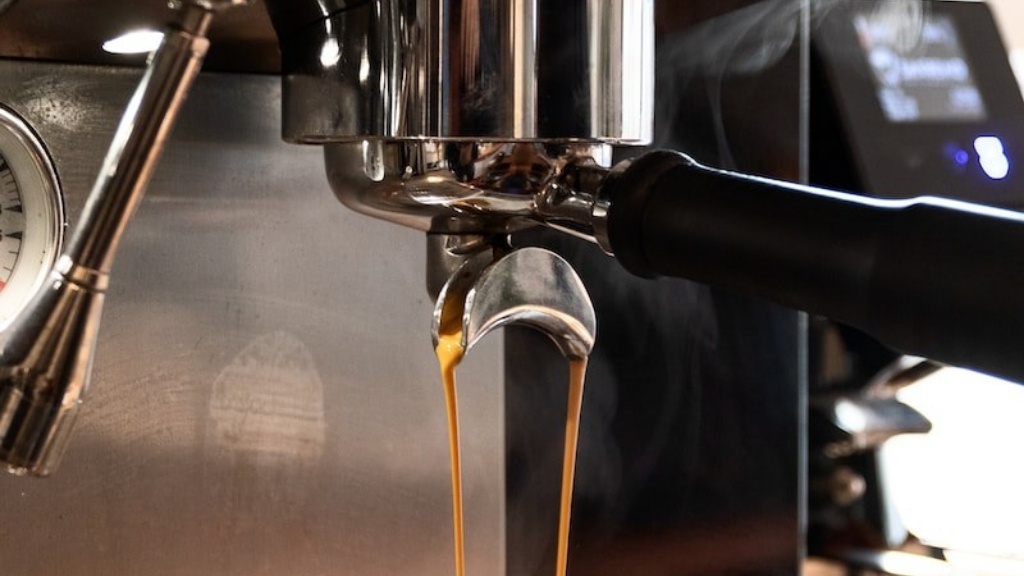Most of us enjoy our morning, mid-day and all around daily coffee ritual. Not only is coffee good for the soul—it can be good for the mind and body too. However, the enjoyment of this daily treat comes with a tinge of guilt for many; open conversations about the systemic racism that infiltrates our society and the environment have raised a fresh question: Is coffee racist? Is it possible to go about our regular coffee routine without perpetuating injustice?
Coffee is grown on plantations and is largely worker-driven. Studies have revealed shocking levels of inequality in the industry, with many workers enduring poverty-like wages and working with little-to-no labour rights. Much of the industry, including the production and service of coffee, is reliant on migrant workers, specifically communities of colour, who face poor working conditions.
Experts suggest that it is the corporations and coffee producers, rather than the drink itself, that are largely to blame and, unfortunately, they sit largely immune to these issues. From harvesting crops on plantations to ethically sourcing ingredients and even supporting local coffee shop owners, the industry seems to remain highly exploitative. The stark power dynamic, perpetrated by institutions and enabled by consumers, makes it difficult for workers to bargain for better wages and conditions, and it is often the migrant workers and communities of colour that bear the brunt of it.
As with most disparities, the systemic racism in the coffee industry is perpetuated in numerous ways. Some are embedded in our laws, others are institutionalised and still more are simply embedded in everyday behaviour. Instances of racial profiling, discrimination and appropriation within the space have been reported, as well as racism in recruitment processes that actively undermine and limit minority workers.
Looking towards a more sustainable and ethical future, we must bear in mind that this issue is bigger than just a beverage; it is a reflection of the inequality and injustices fostered by the industry itself. To make tangible progress, industry-wide changes are required. Education is key: teaching consumers to become conscious of the origin of their coffee—as well as the importance of supporting businesses that show a commitment to greater ethical and social responsibility—is essential. We must also hold producers and suppliers accountable, encouraging them to follow sustainable practices.
Innovations for a Better Future
Fortunately, there have been a slew of innovative changes to the industry’s practices. Several organisations have adopted initiatives to make the industry fair, viable, and altogether more sustainable. This includes projects that support local businesses, farmers, and workers. It also includes initiatives that promote transparency and ethical sourcing throughout the supply chain. Consumers can also support farmers’ rights and help promote sustainability by making smart decisions with their daily coffee purchase.
Organisations like The United Nations’ International Coffee Organisation (ICO) have also helped create a level playing field for countries that are producing and exporting coffee. Through initiatives like the Truth in Trade Program, launched in 2006, ICO aims to empower farmers to participate in the global trade structures and create a mutually beneficial relationship with consumers from around the world.
In 2013, Fairtrade announced an increased minimum price for farmers, with an additional 20-cent premium to invest in business and communities within the area. The increase was an effort to help farmers stay afloat, despite the industry’s notoriously-low commodity prices.
In 2018, Starbucks joined forces with CUP (Coffee and Farmer Equity) to launch a collaborative effort to improve the quality of life for farmers and their communities in countries like Guatemala and Rwanda. From utilising new agricultural techniques to health and education programs, the project aims to provide tangible support to those who need it most.
Educating Consumers
For decades, coffee businesses have employed marketing tools that use messaging and imagery to normalise colonial and racist tropes. In recent years, however, there has been an effort to slowly shift the industry’s rhetoric, to one of social and environmental justice advocacy, that elevates migrant workers and farmers and highlights the important role that they play in our society, as well as in the coffee industry as a whole.
To ensure that we are not merely paying lip service to the cause, organisations, consumers and coffee corporations alike have all committed to taking proactive steps towards increasing awareness around the applications and implications of racism in the industry. Many have made it their mission to promote inclusive working and consumption practices and minimise the impact of prejudice and bigotry in the workplace. To that end, companies such as Starbucks, have set up sustainability programs and support initiatives, that include providing educational and leadership opportunities to workers.
At the same time, coffee drinkers and enthusiasts are also taking steps to protect their favourite brew and the workers who produce it. More consumers are investing in fair trade labels, carefully selecting coffee brands that follow strict ethically and socially responsible standards. Others are taking it a step further, by support local coffee shop owners and farmers working in the industry, and using their consumption to empower migrant workers and promote social justice and environmental protection.
Is Coffee Racism Actionable?
It’s hard to overlook the violence, exploitation and injustice coffee has caused throughout history, but it is worth noting that the issue of coffee racism is one that is deeply imbedded in the industry’s culture and infrastructure. As such, it will take more than simple individual action to promote a more equitable, socially responsible and environment-friendly industry.
For more meaningful, industry-wide changes to take place, concerted efforts to tackle the issue of coffee racism need to be taken. This includes raising awareness, advocating on behalf of minority workers and farmers, and pressuring large coffee corporations to implement fair and sustainable practices. It also involves educating consumers, so that we are all acitvely working to support, rather than perpetuate, inequality.
Harnessing the Power of the Consumer
The sheer size and influence of the coffee industry means that collectively, as consumers, we have the power to effect positive change. Our spending habits—how much and from where we buy our coffee—are uniquely capable of determining the kind of future we have in store for us. We must consciously make an effort to become informed about the industry’s ethics and choose to support businesses that are taking thoughtful steps towards greater sustainability, fairness and justice in the workplace.
Our individual spending power has the potential to challenge systemic racism and its presence in the industry, while also helping to drive a change in the industry’s infrastructure and attitude towards key issues such as wages, labour rights and working conditions. In doing so, we can hope to establish a more equitable, sustainable industry that honors the rights and hard work of both farmers and migrant workers.
Supporting Local Farmers and Businesses
The sustainability and resilience of the coffee industry depends on its local farmers. When we support and invest in local coffee shop owners and farmers, we inject much-needed resources into the local economy and create a positive ripple effect that extends far beyond our cup of coffee. Whether it’s through providing supplies, fertilisers, or providing health insurance or basic living requirements, investing in local farmers helps build social and environmental capital. This ultimately results in safer and more secure working conditions, which also provide a platform for workers to further health, rights, and education of its beneficiaries.
By creating demand for ethical and sustainable production of coffee, we can also help lay the groundwork for a fairer, more equitable, and less exploitative industry. Committing to buying only free trade, fair trade, or certified organic labels is an easy way to support this movement and make sure that we are not behind any systemic racism in the industry.
Putting the Humanity in Coffee
It is clear that coffee, an already ubiquitous and popular commodity, has the power to bring people together—be these marginalized segments of the industry or everyday consumers. Our individual decisions have the power to create a ripple effect and create a lasting improvement in the industry. We have the capacity to influence policy and the working conditions for the better, by using our purchasing power to support the people and businesses that are actively trying to bring positive change.
By committing ourselves to a more equitable and sustainable industry, we can not only support the people that produce and import our daily coffee, but also help construct a more powerful industry for the future: one that puts the “humanity” in coffee.





